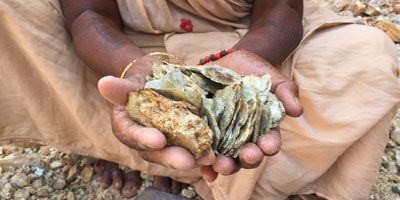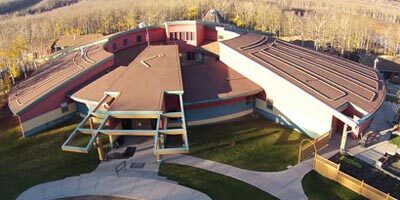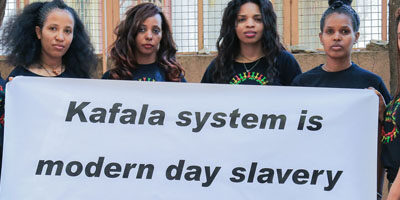My interest in Canadian Foreign Services was sparked by a presentation last spring by Canadian diplomat Ariel Delouya, the Canadian Ambassador in Tunisia. Like him, I am a Canadian who loves to travel and is interested in politics. But what else does it take to become involved in international affairs? Is this the career path for me, and for other students like me? Ariel Delouya’s presentation left out one important thing: how hard he had to work to get to where he was.
In the recruitment campaign in Fall 2009, Canada’s Department of Foreign Affairs and International Trade (DFAIT) interviewed 800 of the 9,500 applicants. Of these, about 200 were hired.
The first stage in the application process involves taking three tests to examine proficiency in writing, reasoning skills, problem solving, and judgment in work-related situations. An assessment board of two or three people, including a hiring manager, an expert in the field, and a human resources representative, interviews those that pass.
Applicants choose between one of two streams: the Commercial/Economic Stream, which focuses on investment and trade policy, or the Political Economic Stream, which addresses foreign policy issues generally, including security, disarmament or human rights.
Those selected by DFAIT will then spend three years in Ottawa undergoing training and, if necessary, taking language classes. When the training is done, Foreign Service officers must agree to serve at any location in Canada or elsewhere as determined by DFAIT, an employment condition called “rotationality” in the field. Typically, Foreign Service officers move every two to four years.
Gaining experience
David Carment, Professor of International Affairs at Carleton University, said that the traditional formal recruitment route to becoming a Foreign Service officer is not necessarily the only, or even the best, route to a career in international affairs. “I know a lot of people who’ve moved up the ladder by perseverance and contract work. Eventually they find themselves taking on full-time employment and greater responsibility.”
Many recent graduates are willing to take on short-term contracts in a related field that can help them get their foot in the door at DFAIT.
“Almost every federal department, and for that matter, provincial level departments have some international exposure and are looking for generalists, as opposed to specialists, who can work in the field of international affairs.”
Carment said that Carleton’s Co-op Program, available to both undergrads and graduates, prepares students for work in international affairs by exposing them to responsibilities they might take on full-time after graduation. “The Co-op Program is an opportunity for students to determine whether or not this is the kind of career path they want to take. It is also an opportunity for the employer to get a better sense of the skills and capabilities of that individual.”
Exposure to the Foreign Service sector at an undergraduate or graduate level allows students to find employment without having to go through the formal recruitment process, Carment said.”Almost every university these days has some placement program that would allow students to get some exposure to these initiatives. The experience at Carleton is replicated at probably every university across Canada in varying degrees. Ultimately, it comes down to the student’s drive and determination, these things are not going to fall into your lap.”
Living the Foreign Service life
Jennie Chen, an experienced Foreign Service Officer, is the head of media relations and spokesperson for the Canadian embassy in Washington, DC. Enthusiastic about her work in Foreign Service, Chen says she was drawn to it by her love of travel and thirst for constant change.
“Having a stable, long-term career prospect that could allow me to travel, see the world and meet different people really appealed to me.”
After interning at the Canadian embassy in Bangkok, Chen worked in Shanghai, Beijing and Kandahar before moving to Washington. She has a BA degree in International Relations and Asian Studies and an MA in East Asian Studies.
Chen says that working in the Foreign Service has made her a prouder Canadian, as she sees first-hand Canada’s positive reputation around the world. Representing her country is very appealing to her.
However, Chen warns that the rotationality of work in the Foreign Services, while stimulating, can also be exhausting.
“It takes a toll on families and friends, because of the constant movement. You have to be comfortable with yourself and with solitude.”
She herself considers rotationality a positive aspect of her career, and enjoys the process of creating a new niche and social network each time she moves.
Chen says she isn’t sure that there is a perfect university degree out there that will unlock the door to the Foreign Service for students. Her colleagues have diverse backgrounds ranging from sociology to engineering, and she insists that personality, communication skills, judgment and enthusiasm about representing Canada are most important. People working in Foreign Services should have perspective and be able to see the big picture, she said. They should be open-minded and curious about different cultures.
Chen adds that keeping up with current events, having experience working in groups or with student government never hurts. It’s also helpful if you speak another language besides English and French. Most importantly, Chen encourages people to travel. As for the exams, she says the best thing to do to prepare is to have a good night’s sleep.
“I’m really enjoying my career,’ she says. “I feel very lucky. No regrets.”






Peter Vaillancourt
Hello!
I am very much interesting in joining the ranks of those who serve in Canadian embassies around the world. What would I need to do and know in order to be qualified to work in a Canadian Embassy?
I look forward to your reply.
Thank you!
Shrey Das
Very informative and inspiring article! I am a student who is interested in Canadian foreign services as a career option. I have few questions on this article as well as Canadian foreign services. May I ask for your contact information with regards to the same! Thanks!
sjccjs
Although the article was prepared seven years ago, the information and suggestions in terms of a career are probably still appropriate. The author is no longer with the Upstream, and we cannot offer any more information other than what was published. Good luck with your efforts.